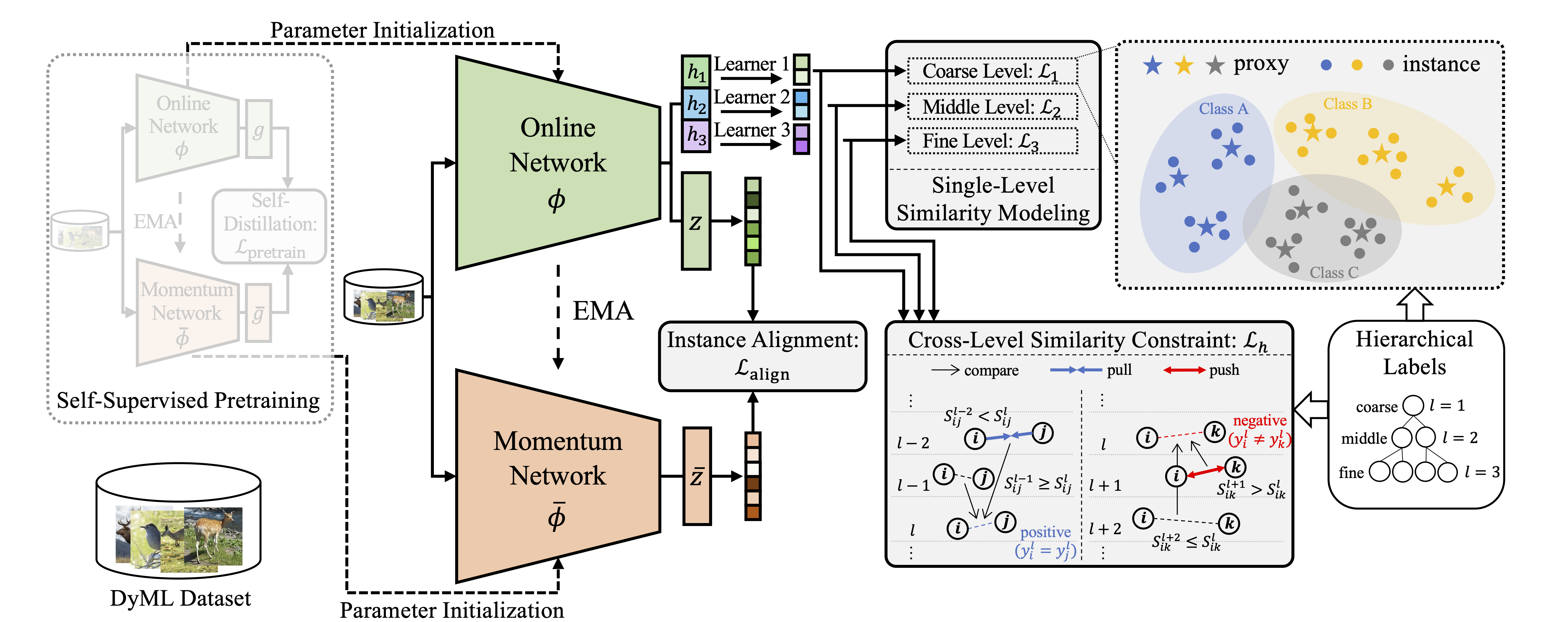This repository is the official implementation of Multi-Scale Similarity Aggregation for Dynamic Metric Learning on dynamic metric learning (DyML) task.
📋 Our code is based on HAPPIER and we greatly appreciate for their work.
This repo was tested with Ubuntu 20.04.1 LTS, Python 3.6, PyTorch 1.8.1, and CUDA 11.1 on one RTX 3090 GPU.
-
Prepare the DyML datasets (DyML-Vehicle, DyML-Animal, DyML-Product).
Download datasets from here and modify the
data_dirindyml_vehicle.yaml,dyml_animal.yaml, anddyml_product.yamlinMSA/happier/config/dataset/.kwargs: data_dir: /path/to/dataset
-
Download pretrained models from here and put them into
MSA/pretrained_model. -
To train the model(s) in the paper, run the following commands.
DyML-Vehicle:
sh run_vehicle_msa.sh
DyML-Animal:
sh run_animal_msa.sh
DyML-Product:
sh run_product_msa.sh
📋 Note that for the DyML-Product dataset, learning a single embedding only for the fine level achieves a better R@1 result (~68%) than that of the complete version of MSA (~66%), and we report the former result. In
run_product_msa.sh, we provide the commands to train these two models.
During testing, we evaluate the performance of both the online network and the momentum network, while the performance of the online network is reported. In TensorBoard, the tag Evaluation_EMA denotes the performance of the momentum network.
Our model achieves the following performance on three DyML datasets:
If you find this repo useful for your research, please consider citing this paper
@inproceedings{zhang2023msa,
title = {Multi-Scale Similarity Aggregation for Dynamic Metric Learning},
author = {Zhang, Dingyi and Li, Yingming and Zhang, Zhongfei},
booktitle = {Proceedings of the 31st ACM International Conference on Multimedia},
pages = {125–134},
year = {2023},
publisher = {Association for Computing Machinery},
}
